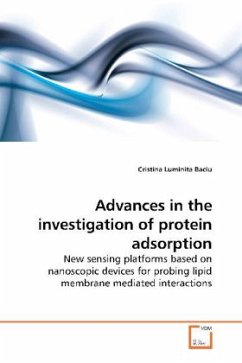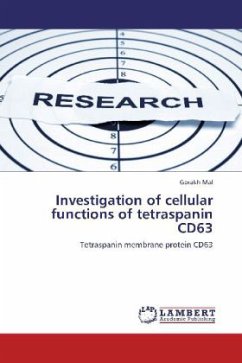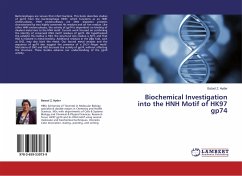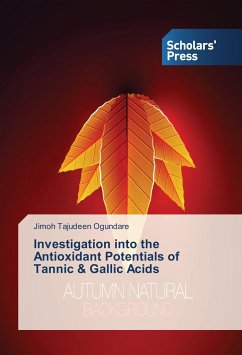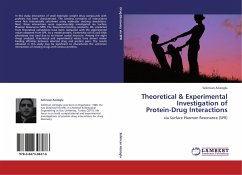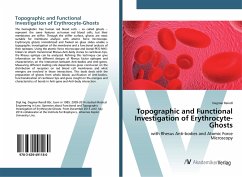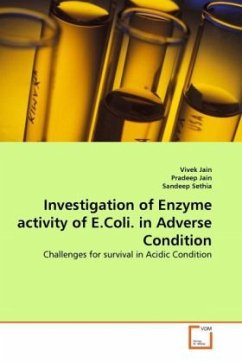
Investigation of Enzyme activity of E.Coli. in Adverse Condition
Challenges for survival in Acidic Condition
Versandkostenfrei!
Versandfertig in 6-10 Tagen
32,99 €
inkl. MwSt.

PAYBACK Punkte
16 °P sammeln!
The objective of this work is to study the response of this neutrophile in an acidic environment with respect to the activities of isocitrate, malate, succinate and G-6-PD on being coupled to the electron transport chain. E.coli have an optimum pH range of 6 to7 for growth and survival and are hence,called neutrophiles. When challenged by low pH, protons enter the cytoplasm; as a result mechanisms are required to alleviate the effects of lowered cytoplasmic pH. This study highlights new insights into activities of isocitrate, succinate, malate and G-6-PD, coupled to the electron transport chai...
The objective of this work is to study the response of this neutrophile in an acidic environment with respect to the activities of isocitrate, malate, succinate and G-6-PD on being coupled to the electron transport chain. E.coli have an optimum pH range of 6 to7 for growth and survival and are hence,called neutrophiles. When challenged by low pH, protons enter the cytoplasm; as a result mechanisms are required to alleviate the effects of lowered cytoplasmic pH. This study highlights new insights into activities of isocitrate, succinate, malate and G-6-PD, coupled to the electron transport chain by the reducing power, as yet another system possessed by E.coli as an armor against harsh acidic environments. The activities of dehydrogenases in acid shocked cells were monitored at intervals of 1, 2, 3 and 4 h at different pH and then compared with their activities at pH 7 (taken as control). Acid stressed microorganisms are an economically important group. Acid stable enzymes with applications as lubricants and catalysts. Improvement of strains can be done by studying the acid tolerance of microorganisms in fermentation broth to increase product yield.





